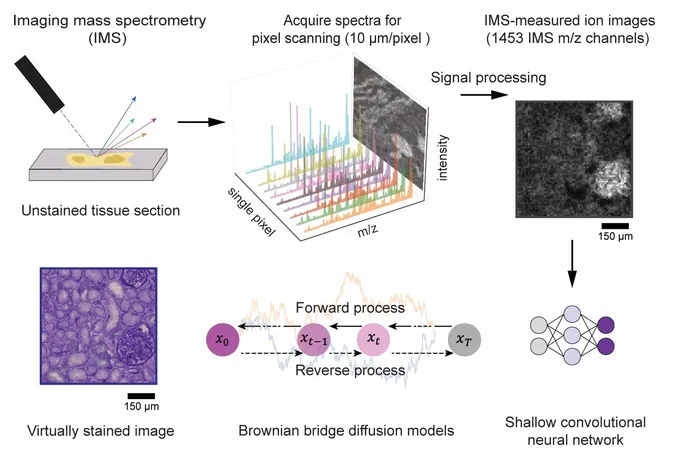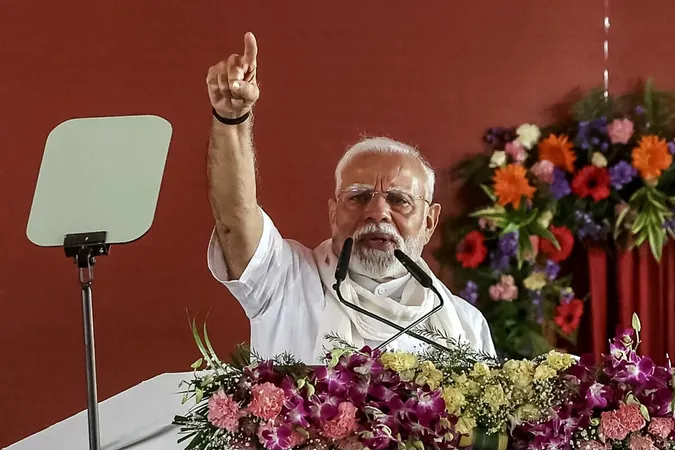
Transforming Addiction Recovery: The Power of Contingency Management Incentives
2025-07-02
Author: Yu
The Challenging Journey of Addiction Recovery
Recovering from drug addiction to opioids and stimulants is a daunting task. It's not just a physical battle; the mental hurdles can be overwhelming as well. Dr. Carla J. Rash, a behavioral health counselor at UConn School of Medicine, emphasizes that the early stages of recovery often lack positive reinforcement for patients.
What is Contingency Management?
Dr. Rash explains that Contingency Management (CM) is a transformative tool in addiction recovery. It introduces an element of positivity into a patient’s treatment plan, encouraging progress during difficult times. By offering vouchers and prizes as incentives, CM effectively rewards patients for their hard work in recovery.
The Efficacy of Contingency Management
Despite its incredible potential, CM remains underutilized and underfunded. Research has shown it to be the leading behavioral therapy for stimulant addiction, including substances like cocaine and methamphetamine. CM can also complement traditional treatments for opioid addiction, such as heroin and prescription painkillers.
Groundbreaking Research Findings
In a recent study published in JAMA Psychiatry, Dr. Rash and her team analyzed 112 CM protocols aimed at reducing opioid and stimulant use. They discovered optimal incentive levels—$128 per week for vouchers and $55 for prizes over at least 12 weeks—to effectively lower drug use. This translates to about $1,536 in voucher costs and $660 in prize costs over a typical 12-week program.
Comparative Costs and Recommendations
Remarkably, these costs are competitive when stacked against first-line treatments for opioid use disorder, such as methadone and buprenorphine. The researchers pointed out that effective CM is generally a short-term therapy, making it a cost-friendly option.
Advocating for Appropriate Funding
The Substance Abuse and Mental Health Services Administration (SAMHSA) has recently increased its CM funding from $75 to $750 per patient per year. However, Dr. Rash insists that these amounts are still inadequate, urging policymakers and healthcare providers to adopt evidence-based CM protocols.
A Mission to Expand Access to CM
Dr. Rash is passionate about making CM available to more patients and families. She has dedicated her career to this mission since her early days as a graduate student, inspired by the profound impact CM can have on recovery. Her journey included working on a major national CM program for the Veterans Administration that continues to thrive.
The Path Forward in Addiction Treatment
As states like California adopt their own CM initiatives, the need for robust and effective protocols continues to grow. Dr. Rash emphasizes the importance of maintaining strict guidelines to prevent the misuse of CM, reiterating that effective protocols are crucial for achieving real results in addiction recovery.





 Brasil (PT)
Brasil (PT)
 Canada (EN)
Canada (EN)
 Chile (ES)
Chile (ES)
 Česko (CS)
Česko (CS)
 대한민국 (KO)
대한민국 (KO)
 España (ES)
España (ES)
 France (FR)
France (FR)
 Hong Kong (EN)
Hong Kong (EN)
 Italia (IT)
Italia (IT)
 日本 (JA)
日本 (JA)
 Magyarország (HU)
Magyarország (HU)
 Norge (NO)
Norge (NO)
 Polska (PL)
Polska (PL)
 Schweiz (DE)
Schweiz (DE)
 Singapore (EN)
Singapore (EN)
 Sverige (SV)
Sverige (SV)
 Suomi (FI)
Suomi (FI)
 Türkiye (TR)
Türkiye (TR)
 الإمارات العربية المتحدة (AR)
الإمارات العربية المتحدة (AR)